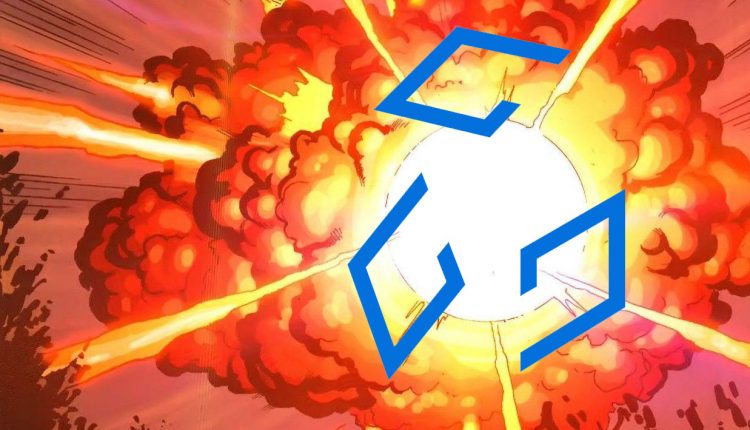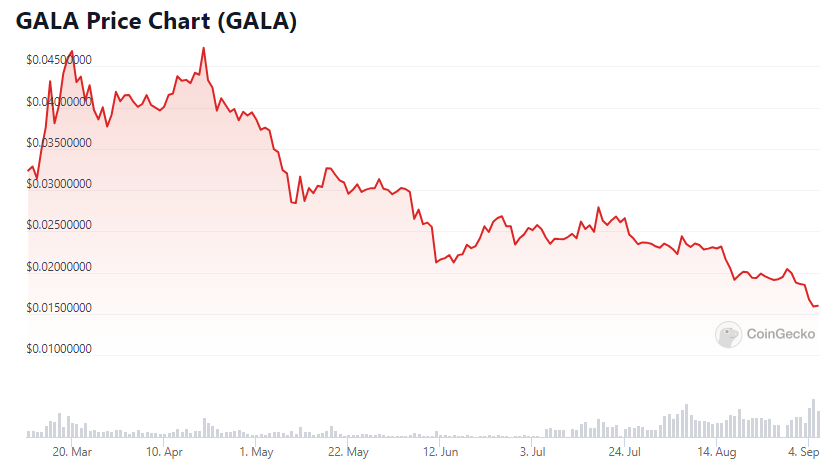Lawsuits shed light on Gala’s token fork and burn

Don’t miss out on any daily news from the blockchain games space: sign up to our Substack and follow us on Twitter.
In April 2023, blockchain gaming platform Gala Games surprised its token holders with the news it would be forking its GALA token, reissuing it as v2 GALA token.
More confusion arose from the announcement in May that it was burning 42% of these GALA v2 tokens. The reason given for this was to counter the “fundamental risk to the overall tokenomics of the project” in terms of a “dump and exit scenario.
As worthy as it seemed though, these actions certainly raised some questions at the time.
But as the graph below shows, the move hasn’t done anything to shore up the GALA token price, which is now down 98% from its all-time high in late 2021.

But, with the recent news that Gala’s two co-founders are suing each other for hundreds of millions of dollars, a clearer picture is about to emerge.
In one corner sits Gala co-founder Eric Schiermeyer, one of six co-founders of Zynga, who is suing his fellow Gala co-founder Wright Thurston for stealing and then selling at least $130 million-worth of GALA tokens.
Given his credentials in the game industry, one can’t help but wonder how Schiermeyer ended up co-founding a company with a man who according to his complaint has, over the past 20 years, founded numerous marketing and sales companies, “most of which have ended up in litigation, insolvent, bankrupt, and/or sued by the SEC”.
As an example, the SEC is currently suing Thurston (and others) for selling $18 million-worth of tokens and nodes in the fraudulent Green blockchain project, which started in 2018. Thurston also ran an unsuccessful Bitcoin mining company in 2017. Despite all this, Thurston was, until recently, Gala’s Chief Blockchain Officer.
The court document notes, “Thurston is a person who comes across as earnest and convincing. He does favours for people. In online profile pictures, he often appears cuddling his wife. He calls himself a “dedicated member of his community” who “frequently volunteers with his church.” This persona has enabled him to fool many people, at least initially, and he has enriched himself through his pattern of deception.”
This then explains Gala’s decision to fork its native token. At the time this was said to be due to “enhanced burn mechanisms, security enhancements, and future upgradeability”. Now it turns out this was a move to reissue the token supply to ensure the tokens Thurston was alleged to have stolen would be worthless.
Thurston on the other hand, has a very different view on the matter.
His counter-suit alleges Schiermeyer enriched himself to the detriment of Gala Games as a company and Thurston as a co-owner in terms of the way Schiermeyer controlled various assets. For example, he’s alleged to have started various new subsidiaries and decided to reissue the Gala token and burn large quantities of it without seeking wider approval. Further, it alleges Schiermeyer spent $5 million on a down payment for a private jet. Notably, the lawsuit also alleges that the reissuing of the Gala tokens cost Thurston $151 million.
For the underlying context of these lawsuits was the incredible success of Gala Games, as a speculative blockchain project, at least in the period Q3 2021 to Q2 2022 when it was one of the best performing crypto tokens with a market cap of over $4 billion.
Part of Gala’s web3 game portfolio are titles including Spider Tanks, Town Star, and more recently launched Poker GO and Champions Arena, all of which are deployed on Gala’s own blockchain.
In an attempt to ease the pain among the many GALA token holders wondering what’s going on, Gala has officially responded on X saying it’s got the “imminent Launch of several titles + tons more game news” and “REP, the social media platform” as well as a bunch of film trailers released, and more.
Obviously this sidesteps the question of the longterm prospects for a company in which the two co-founders are suing each other; something that seems likely to drag on for months, revealing more dirty laundry in the process.
How did it get so messy? Part of it might be explained by the fact that when Gala Games was set up, its bylaws required a 2/3 majority vote for the board to act, but the company only had two equal shareholders; Eric Schiermeyer and Wright Thurston.
In other words, no matter what else happened, and clearly plenty of unforeseen things was to come, the seeds of its decline and fall were baked in from the beginning.
